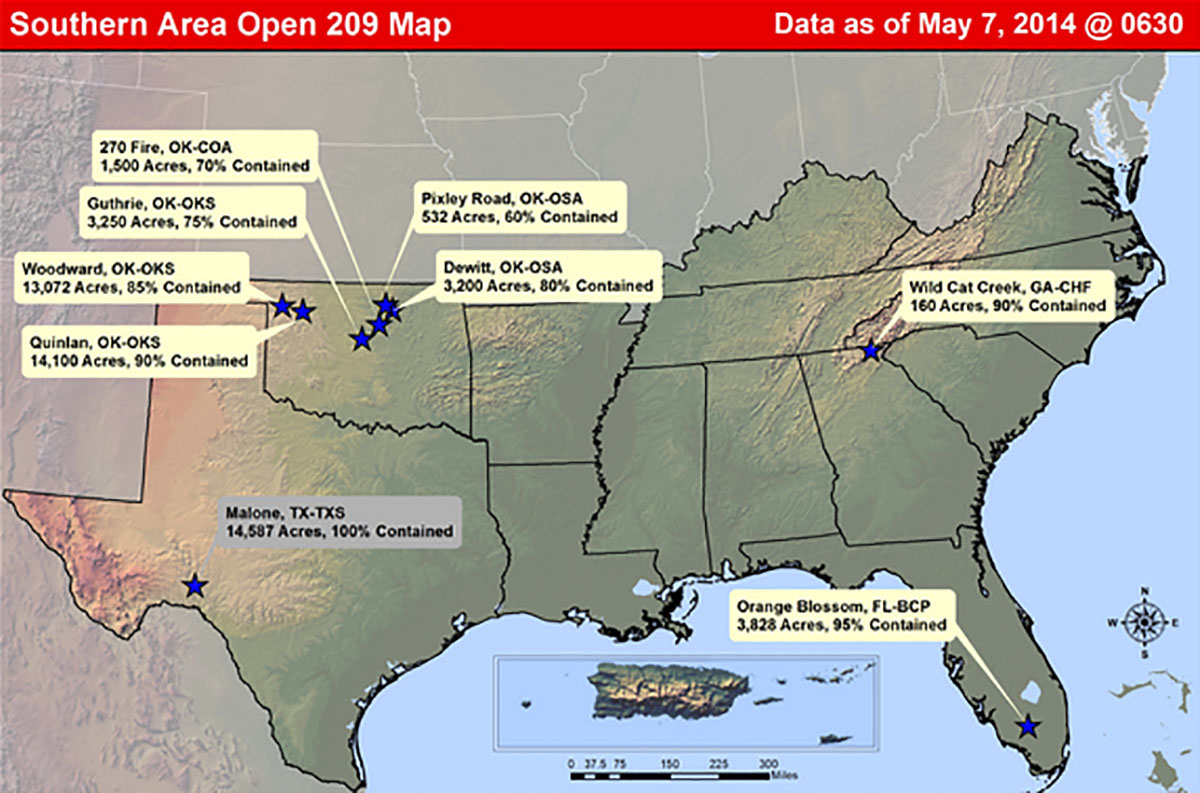WASHINGTON –Residents of the Southwest fear the continuing droughts there will spark even more wildfires this summer, but residents of the Southeast fear a different culprit as they prepare for fire season: people.
Humans were the number one cause of wildfires in the Southeast last year, according to a study done by Southern Fire Exchange. And with a growing population in Florida, that fact may remain true in years to come.
The National Interagency Fire Center reported that humans have started more than 62,000 wildfires annually between the years of 2001 and 2013. About 48 percent of those fires occurred in the Southeast. In addition, more than 40 percent of the land burned by human-caused fires nationally between 2001 and 2013 was in the South, totaling more than 960,000 acres.
“A place like Florida, as long as the population is expanding, there’s going to be more human-caused ignition,” Alan Long, an administrative director of Southern Fire Exchange, said. Census data shows that the population in Florida increased 4 percent from April 1, 2010 to July 1, 2013. “There are always going to be people that make mistakes.”
Already this year, Florida has had 17 wildfires on U.S. Forest Service land, all caused by human activity, according to the Forest Service’s Southern Area Coordination Center.
Human-caused fire is defined as any fire that is not naturally occurring or prescribed as maintenance. These fires can be sparked accidentally by, for example, barbecues or cigarettes or be more deliberate, caused by arson.
“Part of it is population, part of it is the way people use the land,” National Interagency Fire Center spokesman Ken Frederick said. Frederick said it’s more common for people to burn garbage and debris in the Southeast. “People don’t do that in the West. They understand the fire danger,” he said.
With more people and less space, there are more Floridians living along wildland urban interfaces, defined as areas where buildings and roads are in or next to areas prone to fire. So when fires do happen, there is greater urgency to put them out before they hit homes and businesses.
Chelsea Parker of the Florida Forest Service said arson is one of the biggest causes of fires set by people. Parker defined fire by arson as any fire that is intentionally started in a forest. These fires are malicious in intent, she said.
“We locally have an arson issue,” she said. “It’s difficult to say why that might be more so in the South than anywhere else.”
To mitigate natural fire danger for residents, Parker said, the state fire service will prescribe a large number of fires to get ahead of the natural processes and still provide benefits to the ecosystem. “When you put houses in the mix you have to disrupt that natural process,” she said.
But as for human-caused fires, Long, of the Southern Fire Exchange, does not think they will be going away any time soon. “As long as people are living in these areas, there will always be human-caused ignitions,” he said.

